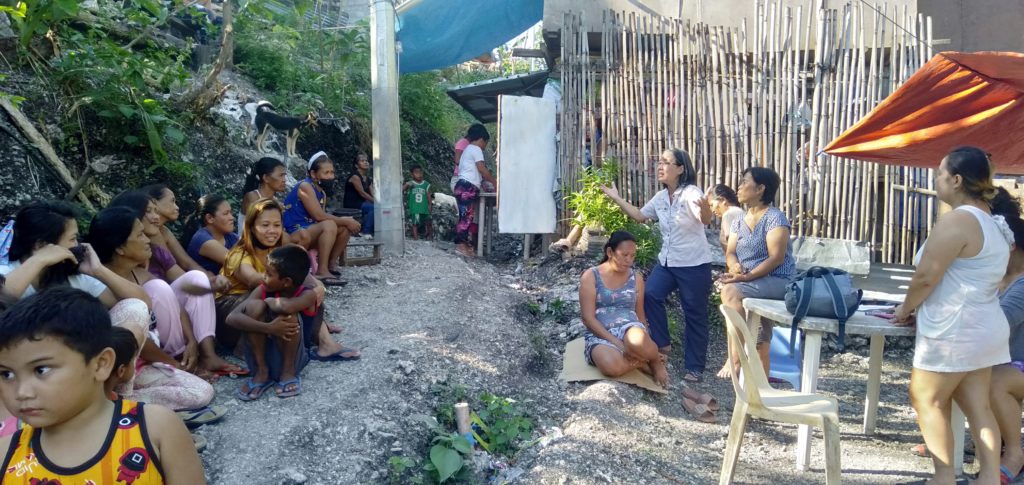Information and Services for Filipinos
July 2006 – June 2010
The project “Karapatan: Rights-Based Sexual and Reproductive Health (SRH) Information and Services for Filipinos (KRIS)-VPHCS,” also called as the “Yo! Lead or Youth on the Lead” was a leadership program for youth–initiated adolescent reproductive health advocacy and services in the provinces of Cebu, Bohol and Negros Occidental, Philippines that aimed to promote increased practice of healthy reproductive and sexual health (RSH) behaviors among the youth.
In the span of four years, from July 2006 to June 2010, the project remarkably harnessed the potentials of the Visayan youth to own and develop a reproductive health project that responded to their very own issues and concerns.
The project worked in partnership with 29 youth organizations in selected schools and communities in the three provinces in providing information and access to youth-friendly reproductive health services and developing leadership and life skills crucial to them.
Funded by the Planned Parenthood Federation of America (PPFA), the project was born in 2006 to address the sexual and reproductive health (SRH) problems and concerns of the youth by providing youth -initiated adolescent reproductive health advocacy and services. Teen-age pregnancies, sexually-transmitted diseases and infections, unsafe abortions and cases of violence, among other problems, continued to affect the youth and needed to be addressed by all sectors of our society, including the youth themselves.
The project strived to increase the awareness and practice of healthy SRH behaviors and reproductive rights among the youth in the project areas. It also aimed to increase access to, and utilization of rights-based SRH services for the youth.
The project harnessed the leadership and initiatives of its 29 partner youth organizations in different schools and communities in Cebu, Bohol and Negros Occidental to design and implement projects that provided sexuality education and SRH services to vulnerable youth populations in their schools and localities.
The project trained and mentored leaders and peer educators of these organizations, 20 of which are community-based and nine are school-based, and provided small grants for their projects on SRH information, advocacy and services.
The project developed more than a hundred youth leaders and peer educators from schools and communities in the three provinces to become knowledgeable on SRH issues, effective communication, project management, and leadership development. Through various worthwhile activities and experiences including needs assessments, focused group discussions, trainings on leadership and reproductive health, youth camps, peer educators’ trainings and other educational gatherings, all youth organizations tremendously enhanced the awareness and practice of safe sexual and reproductive health behaviors, promoted reproductive rights, and increased access to and utilization of rights-based SRH services among their youth populace.
The project also established mobile health services in the communities with the youth leaders providing contraceptive commodities secured from the Pop Shop. People who needed reproductive health services and counseling were also referred to the VPHCS clinic.
On December 1, 2008, the Youth for Rights Network (Y4R) was launched as a network of the youth organizations. It engaged in advocacy activities, particularly innovative and creative activities and projects to address particular concerns and needs of the youth especially in reproductive health. Through the programs crafted by the network, it produced capable, productive and pro-active members of the community.
In its last year, the project came up with a novel service called the Sexual Reproductive Health (SRH) Short Message Service (SMS) hotline.
Youth who had problems related with sex, pregnancy, sexually transmitted infections, contraception, or other aspects of adolescent reproductive health asked information and help from trained peer educators of the Y4R network through SMS or text messages. This made the transfer of accurate SRH information and peer counseling to peers more accessible and youth-friendly. A manual for peer educators containing information, guidance and standard procedures for the hotline served as a guide in answering text messages.
The fourth year also saw the publication of an end line survey which gathered data on the level of knowledge, attitudes, behaviors and beliefs of partner youth organizations regarding reproductive health and their sexual and RH problems after four years of the project.
The project also published a 40-page end of project document which summarizes the project achievements, highlights the sexual and reproductive health initiatives of the 29 partner youth organizations and literary contributions from the youth.
In conclusion, the project indeed showed that the youth themselves must be empowered to recognize and act upon their needs in order to sustain successful youth SRH programs. Such programs can work much better when the youth leaders receive inputs on technical concerns and leadership and are supported by a network of adults and services that meet their needs.



